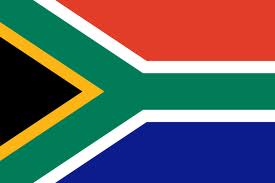Representatives from Brazil, the Russian Federation, India, China and South Africa (BRICS), met in Durban, South Africa, on 27 March 2013, at the Fifth BRICS Summit, which was held around the theme “BRICS and Africa: Partnership for Development, Integration and Industrialization.” The Summit concluded with the adoption of the eThekwini Declaration that considers a range of international issues, including the global economy, sustainable development, climate change and trade.
 27 March 2013: Representatives from Brazil, the Russian Federation, India, China and South Africa (BRICS) met in Durban, South Africa, on 27 March 2013, at the Fifth BRICS Summit, which addressed the theme “BRICS and Africa: Partnership for Development, Integration and Industrialization.” The Summit concluded with the adoption of the eThekwini Declaration, which considers a range of international issues, including the global economy, sustainable development, climate change and trade.
27 March 2013: Representatives from Brazil, the Russian Federation, India, China and South Africa (BRICS) met in Durban, South Africa, on 27 March 2013, at the Fifth BRICS Summit, which addressed the theme “BRICS and Africa: Partnership for Development, Integration and Industrialization.” The Summit concluded with the adoption of the eThekwini Declaration, which considers a range of international issues, including the global economy, sustainable development, climate change and trade.
In the eThekwini Declaration, the BRICS indicate that the Fifth BRICS Summit “concluded the first cycle of BRICS Summits.” The countries reaffirm their “commitment to the promotion of international law, multilateralism and the central role of the United Nations (UN).” BRICS representatives acknowledge that the current global governance architecture is ruled by entities conceived when the international landscape presented very different challenges and opportunities. They thus commit to explore new models towards more equitable development and inclusive global growth. Stressing challenges in developing infrastructure in developing countries due to lack of long-term financing and foreign direct investment, BRICS countries request their finance ministers and central bank governors to conclude the agreements to establish: the New Development Bank for mobilizing resources for infrastructure and sustainable development projects in BRICS and other emerging economies and developing countries; and the Contingent Reserve Arrangement (CRA) in order to have a self-managed financial safety net among BRICS to strengthen financial stability.
In the Declaration, BRICS indicate their intention to seek to stimulate infrastructure investment in Africa based on mutual benefit to support industrial and skills development, job-creation, food and nutrition security, poverty eradication and sustainable development. The Declaration highlights the meeting with African leaders on “Unlocking Africa’s potential: BRICS and Africa Cooperation on Infrastructure,” as an opportunity to strengthen cooperation with the continent.
BRICS call on all parties to build on the decisions adopted in the 18th session of the Conference of the Parties (COP 18) to the UN Framework Convention on Climate Change (UNFCCC) held in Doha, Qatar, at the end of 2012, in order to reach a successful conclusion by 2015 of negotiations on the development of a protocol, another legal instrument or an agreed outcome “with legal force, under the Convention applicable to all Parties, and guided by its principles and provisions.”
BRICS countries reiterate their commitment in attaining the Millennium Development Goals (MDGs) and stress that the post-2015 development agenda should build on the MDG framework, and retain poverty eradication and human development as the main focus. They support that the mobilization of means of implementation in assisting developing countries’ needs be an overarching goal. In this context, they emphasize the need for discussions to be framed in a broad, universal, inclusive and transparent intergovernmental process under a UN-wide process. Finally, welcoming the establishment of the Open Working Group (OWG) on the Sustainable Development Goals (SDGs), BRICS state their commitment to a coordinated intergovernmental process for the elaboration of the UN development agenda. [Fifth BRICS Summit’s eThekwini Declaration] [Fifth BRICS Summit Website]